Don’t Be Robbed by Fraud
Guide G-205
Revised by Bryce Jorgensen
College of Agricultural, Consumer and Environmental Sciences, New Mexico State University
Author: Extension Family Resource Management Specialist, Department of Extension Family and Consumer Sciences, New Mexico State University. (Print Friendly PDF)
According to Experian, in 2017 there were 1.1 million complaints from Americans of identity fraud, and consumers reported $744 million that was stolen. In New Mexico, there were 12,326 complaints reported of identity fraud in 2017. In 2016, identity fraud hit a record, affecting 15.4 million Americans with $16 billion reported stolen that year. Part of this increase is that criminals are shopping online more or stealing personal information to take over personal accounts.
Frauds evolve in an attempt to adapt themselves to current situations. The concept of fraud may be the same, but people who commit frauds alter their approaches and methods of operating. Fraud artists will utilize any circumstances to make their deceitful programs attractive and believable to consumers.
Being an alert consumer is the first step in self-defense. Many problems can be avoided by recognizing fraudulent schemes and the tactics that are used to cheat consumers out of their money.

© Balefire9 - Dreamstime.com
While the forms of fraud may change from time to time, the tactics employed by fraudsters are similar. They strive to obtain your personal information and money by focusing on fear, urgency, safety, financial needs, and health concerns. To protect yourself from ever-evolving fraud schemes, take the following precautions.
- Identify: The first step is to stay away from scammers. The scammer’s tactic is to scare the consumer by presenting themselves as someone important, such as a government official, your bank, or other high-profile accounts you may have. You are not obligated to send any money to them until you’re able to confirm the statement they’re giving you.
- Take Your Time: Shop around for services or products and compare prices and quality. Con artists want you to make a quick decision by threatening you or over-emphasizing the importance of not paying them for their so-called services.
- Contract: Do not sign any contract without reading it carefully or any contract with blank lines or spaces. A fraud tactic is to add damaging information in these blank spaces. If you have questions, consult your lawyer or someone you know and trust.
- Payment: Do not provide your credit card or bank account numbers to anyone over the phone unless you initiate the call. Do not pay for services before you receive and are satisfied with them.

© Balefire9 - Dreamstime.com - No, Thank You: It is fine to put the phone down or close your door in a polite but firm manner, but this may require some practice. For internet scams, learn how to disregard catchy emails, banners, and pop-ups. If you ever receive a robocall (a recorded sales pitch), hang up immediately and report it to the FTC. These phone calls are illegal and are not allowed.
- Too Good: Be wary of promises of goods or services at “special” prices, prizes that require a payment or service charge, or “free” offers. Remember, when an offer sounds too good to be true, it usually is! Be cautious, however, because these con artists may have responded to this notion: A fraud offer may purposely be adjusted so that it does not look like too good of a deal. The fraud artists may go so far as to create professional-looking websites and real-looking blogs with believable comments.
Below are some examples of the latest frauds.
Mortage Rescue Repair
Con artists know that distressed homeowners are easy targets for their easy money. Two main fraudulent avenues are requiring troubled homeowners to provide large up-front fees and signing documents that lead to handing the house over to these con artists. With either way, these con artists convince people of their ability to prevent a home foreclosure by lowering the mortgage balance, monthly mortgage payments, and interest rate while possibly taking advantage of tax incentives and the federal economic stimulus package.
In reality, homeowners may request a mortgage modification from their loan officers or lenders at no cost. Mortgage companies actually do not like foreclosures because they will lose money. Fraudulent mortgage loan servicers who promise to work wonders may use pressure tactics such as making you sign a stack of documents that includes handing over the house ownership, emphasizing that the fraud solution is the only out, and singling out the need to act fast.
Credit-Related Frauds
Credit card-related frauds surface in many forms, including freebies (T-shirt, lunch) for filling out a credit card application or waiters in a restaurant stealing your credit card number. In a practice rampant in colleges, individuals set up their tables where they provide a coupon for a free lunch or free T-shirt when people sign up for their credit cards. Young college students who are unaware of this dirty tactic provide their Social Security numbers and other personal information in these credit card applications. This information is in turn used by fraudsters to apply for credit cards under the students’ names, which are then used by these fraudsters.
In recent years, our credit and debit cards have transitioned from using the magnetic strip on the back of the card to using the latest EMV chip cards. With these cards, there has been a significant decrease in counterfeit cards, but it has caused the thieves to move online where a physical card is not required for purchases. Essentially, a whole new world has been opened for thieves.
“Please Confirm” Scams
Different types of scams may be grouped under this “Please Confirm” scam category because the fraudsters contact you via email or phone calls, asking you to confirm some personal information. The fraudsters include scary phrases such as “security update purposes,” “deactivation of email if confirmation not made immediately,” and “financial account suspension.” The con artists add legitimacy to their emails or phone calls by exerting urgency in their voice, including the officer’s contact information, and inserting company logos (e.g., PayPal, BBB) in the email. Again, the goals of these fraudsters are to obtain your Social Security number, credit card information, and account password to steal money from you directly or via identity theft.
Stolen Cars Scam
The main problem with this fraud is that the fraudsters have fashioned this fraud so professionally that it is almost impossible for consumers to detect. What happens here is that stolen cars are being sold to consumers, usually at a bargain price. Normally, consumers can use a car’s vehicle identification number (VIN) to check a used car’s history report, which includes information on whether the used car has been stolen, junked, or involved in an accident.
In the stolen car scam, fraudsters make fake VINs for the stolen cars by stealing VINs from similar cars found in public areas; these stolen VINs would check out to be fine by consumers. If a consumer purchases one of these stolen fraudulent cars and the car is found by the police, it would be impounded and returned to its rightful owner, leaving the consumer at a great lost. A way to prevent this from happening is to check for any signs that the VIN label and the area around it have been tampered with. Also, look for signs that stickers at the door area have been altered.
International- and Immigrant-Related Frauds
International and immigrant individuals are likely to be targets of consumer fraud due to their inexperience and unfamiliarity with the U.S. market. The available market for this population is limited due to language barriers and undocumented immigration status, factors manipulated by fraudsters. Among the main frauds that have been affecting these populations are purchasing stolen vehicles, acquiring inadequate houses, choosing car insurance plans, bail-out processes with bonds, and phone card service.
How to Complain About Fraud
The best way to stop consumer fraud is to complain to the proper authorities. If you suspect a fraudulent scheme, contact:
Consumer & Family Advocacy Services Division
Attorney General’s Office
P.O. Drawer 1508
Santa Fe, NM 87504-1508
505-490-4060
Toll free: 1-844-255-9210
NM online consumer complaint form: https://www.nmag.gov/uploads/files/ComplaintForms/ConsumerComplaintForm.pdf
NM online consumer complaint form (in Spanish): https://www.nmag.gov/uploads/files/ComplaintForms/Consumer%20Complaint%20Form%20Spanish.pdf
If the fraud complaint involves federal laws, you may contact the appropriate federal agency at https://www.pueblo.gsa.gov/complaintresources.htm and/or contact the Federal Trade Commission (FTC) at
FTC Consumer Response Center
Washington, D.C. 20580
1-877-FTC-HELP (1-877-382-4357)
www.ftc.gov
Also, be sure to sign up for free scam alerts from the FTC at ftc.gov/scams.
Complaints about e-commerce involving many countries may be lodged at www.econsumer.gov.
It is very important that you file complaints to document the frequency of fraud and abuse so that appropriate actions can be taken against these individuals or companies. If you are not sure where to file your complaints, you may ask or file your complaints at any of the agencies above. Their officers can provide assistance on your complaints, including the best place to submit your complaints. Assistance in Spanish may be available at these organizations.
For further reading
G-216: You Can Check Your Credit Rating
http://pubs.nmsu.edu/_g/G216/
G-228: What Records Should You Keep?
http://pubs.nmsu.edu/_g/G228/
G-260: Small-Dollar Predatory Lending and Bad Loans
http://pubs.nmsu.edu/_g/G260/

Bryce Jorgensen is the Extension Family Resource Management Specialist at NMSU. He earned his Ph.D. at Virginia Tech. As a consultant, trainer, author, and speaker, he focuses on achieving individual, relational, and financial wellness for New Mexicans. An expert in the psychology of change, mindset, and behavioral economics, he provides customized programs leading to life and financial success.
To find more resources more resources for your business, home, or family, visit the College of Agricultural, Consumer and Environmental Sciences on the World Wide Web at pubs.nmsu.edu.
Contents of publications may be freely reproduced for educational purposes. All other rights reserved. For permission to use publications for other purposes, contact pubs@nmsu.edu or the authors listed on the publication.
New Mexico State University is an equal opportunity/affirmative action employer and educator. NMSU and the U.S. Department of Agriculture cooperating.
Revised September 2018 Las Cruces, NM


